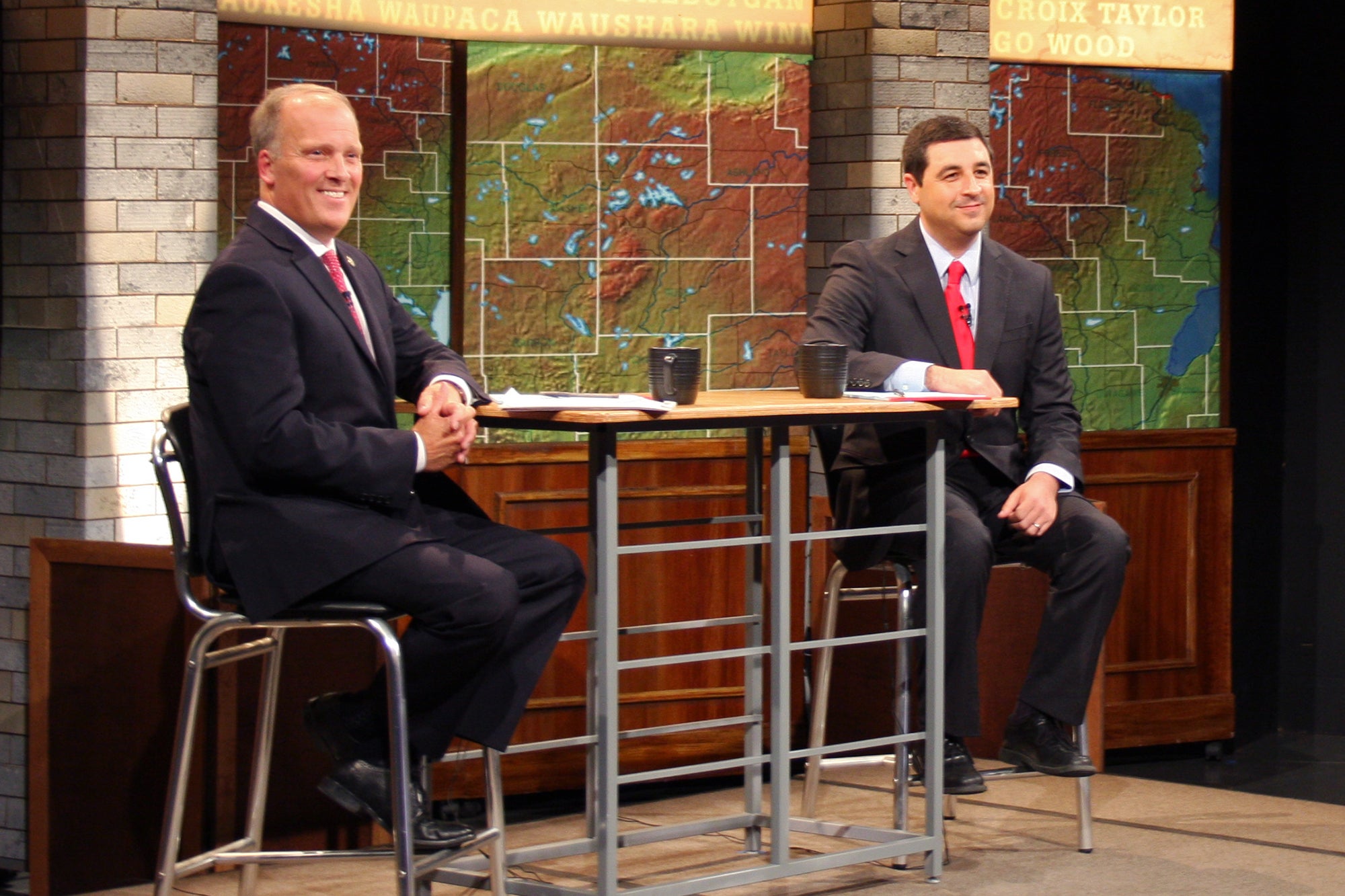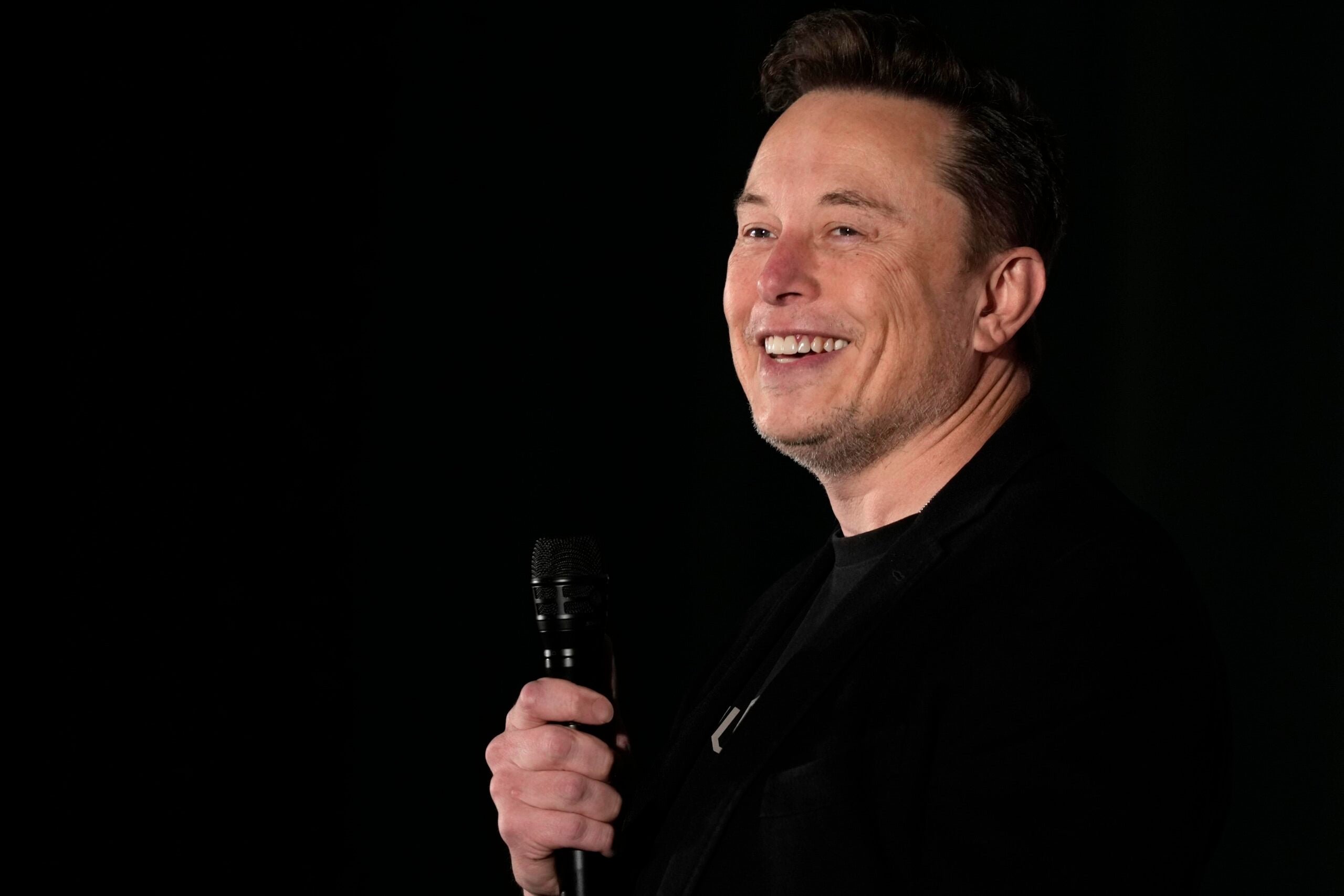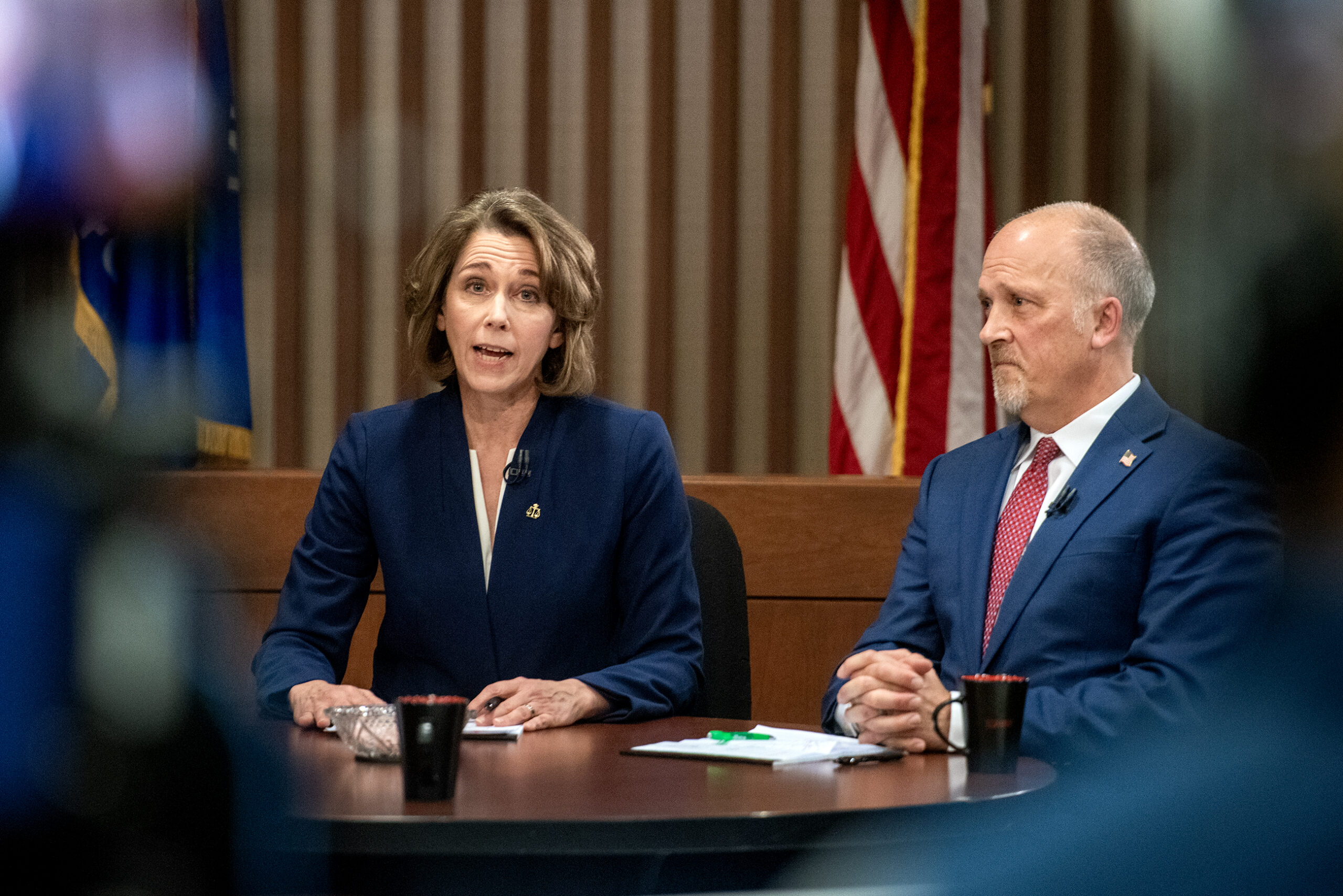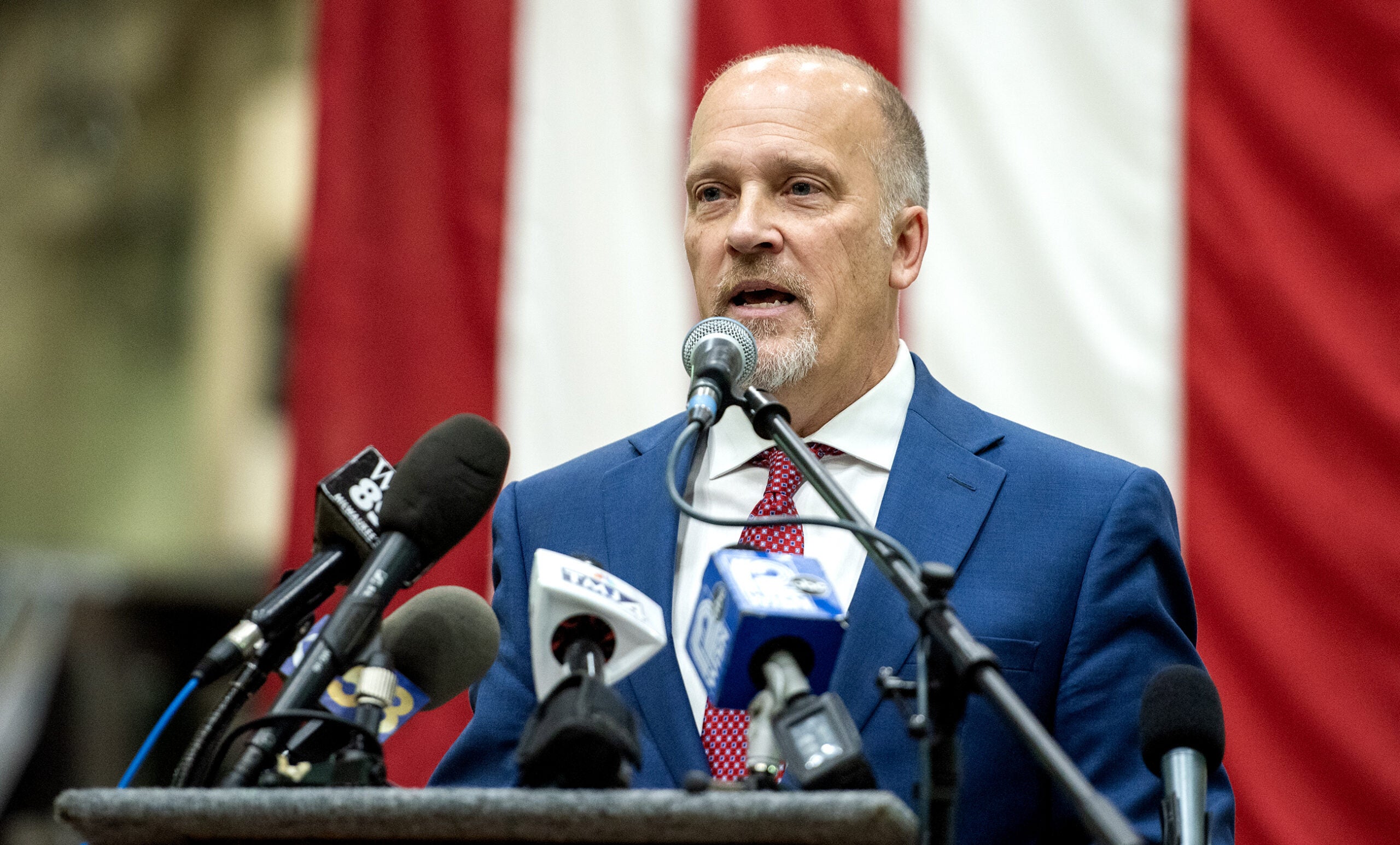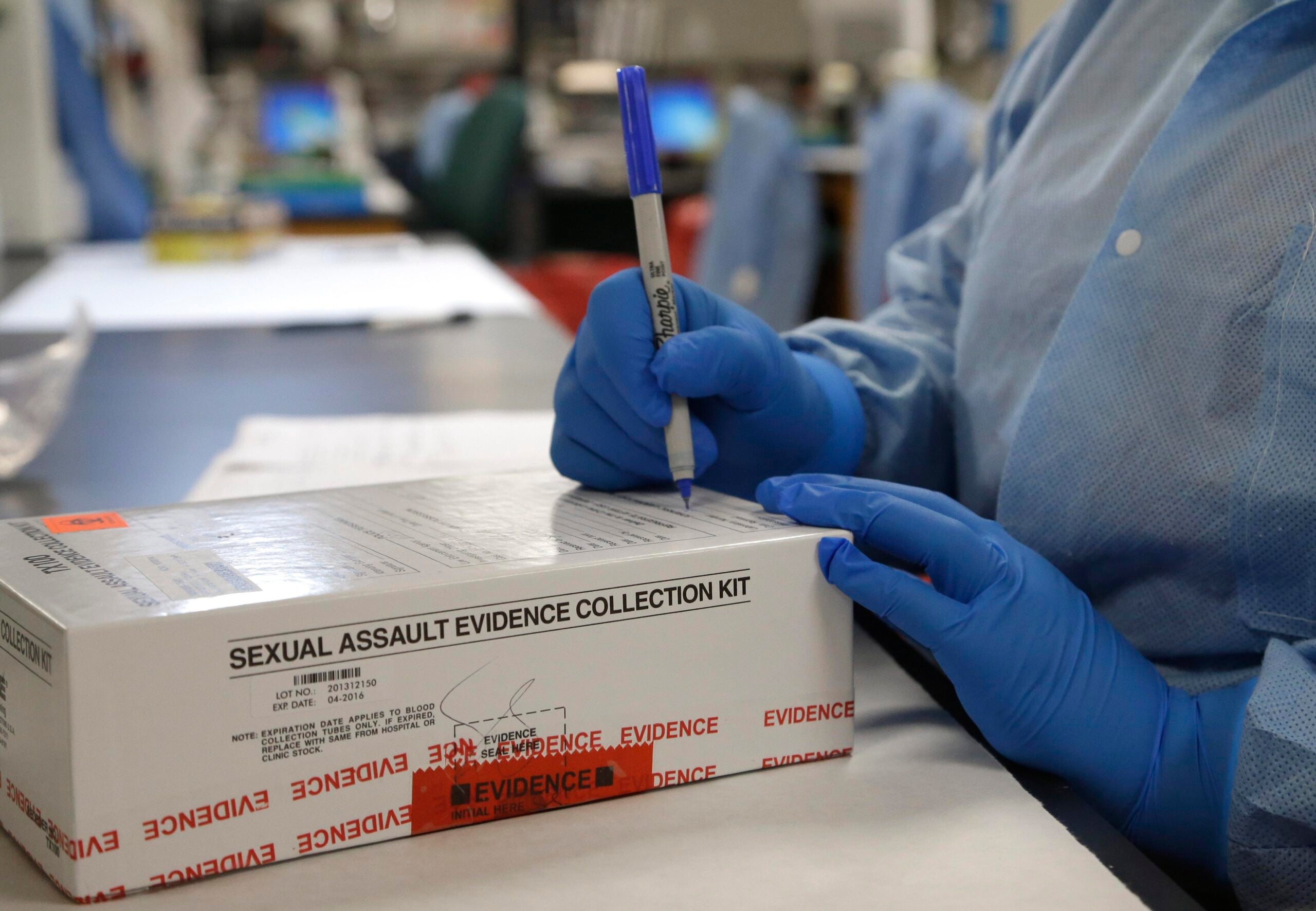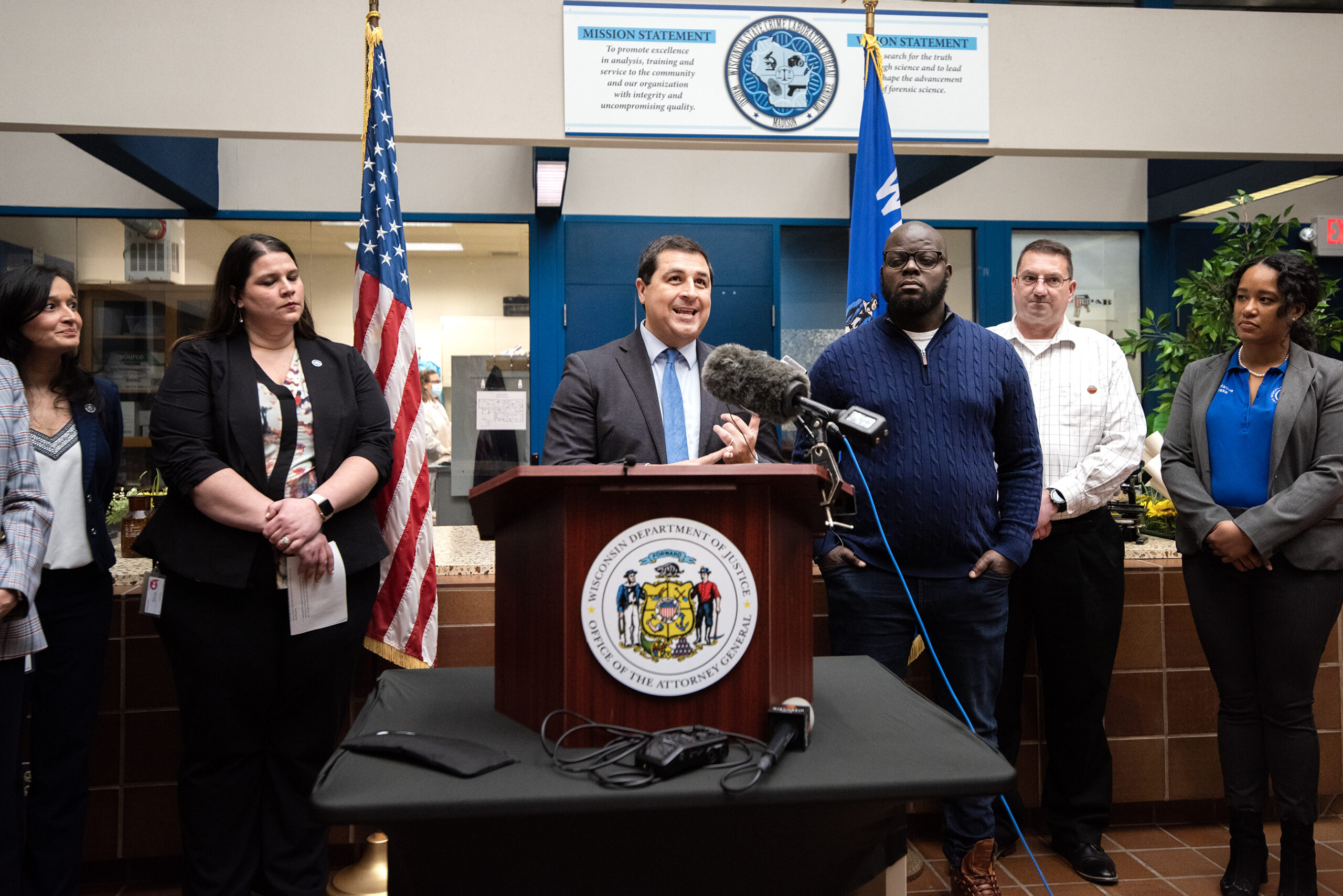Republican Wisconsin Attorney General Brad Schimel and Democratic challenger Josh Kaul went head to head in their first debate of the season Friday evening, clashing on wide variety of issues ranging from school safety to Roe v. Wade to the Affordable Care Act.
But the topic both Schimel and Kaul continued to come back to throughout the evening was the state’s handling of untested sexual assault kits.
In 2014, the state Department of Justice discovered some 7,000 untested sexual assault kits being stored across Wisconsin. In September, Schimel announced that backlog was gone.
Stay informed on the latest news
Sign up for WPR’s email newsletter.
But in Friday’s debate, Kaul questioned why it took so long for the kits to be tested.
“In his first year in office, Wisconsin received millions of dollars to address that backlog, but after he served for two years as attorney general, only nine of the kits in the backlog had been tested,” Kaul said.
Kaul added that the delay in testing led to a delay in getting justice for survivors of sexual assault — a task he’d prioritize if elected.
“Now Schimel said mission accomplished, I fundamentally disagree with that, the goal here is not simply to test these kits, it’s to get justice for survivors of sexual assault and there’s a lot of work left to be done to get justice,” Kaul said.
But Schimel said he was proud of the work the DOJ had done in processing the kits, calling it a 25-year problem he and his staff were able to solve in three years.
“On top of all the work we’ve done to solve the testing problem, we’ve also put in plan a procedure that’s going to make sure that this never happens again,” he said.
Throughout the campaign, Schimel and Kaul have pointed to the opioid epidemic as the biggest issue facing the state, and it was another common thread Friday.
Schimel touted the work the DOJ has done in reducing the number of opioid prescriptions in the state.
“Our award-winning ‘Dose of Reality‘ prevention campaign is now being used in six states and it has reduced prescribing opioids in Wisconsin by 20 percent,” Schimel said. “And I created a drug take-back program in Wisconsin that has collected over 400,000 pounds of unused medications since I became attorney general.”
Kaul argued the focus needs to be on targeting large-scale traffickers and providing better treatment to those who fall victim to drug addiction.
“We need to start responding to this epidemic like the crisis it is. First, I think we need to ensure that our enforcement efforts are targeting large-scale traffickers who are sending drugs like heroin and fentanyl and meth across county lines and state lines,” Kaul said. “We also need to expand access to treatment far more seriously than we have so far, so that people who fall into the trap of addiction are able to get the help they need to get back on their feet.”
Kaul also said he’d hold pharmaceutical companies accountable for their role in the opioid epidemic, referencing a lawsuit joined by states across the United States to sue opioid manufacturers.
Schimel has avoided joining the lawsuit, arguing it could derail a multi-state investigation into whether or not pharmaceutical companies played a role in exacerbating the epidemic.
Asked when they’d get involved in other federal cases, Kaul said he would have joined lawsuits when net neutrality was eliminated and when students alleged fraud against for-profit colleges.
“What our AG has done instead is get the state involved in suits that harm the interests of Wisconsinites,” Kaul said. “He is challenging the Affordable Care Act, and fighting to eliminate protections for people with pre-existing conditions, and he got the state involved in (a) lawsuit that challenged a rule that guaranteed overtime pay for people who put in the hours.”
Schimel pointed to his lawsuit challenging clean air standards implemented by the Obama administration, known as the Clean Power Plan.
“With the Clean Power Plan for instance, that was passed without following the rules and the Administrative Procedures Act, and it also exceeded the authority granted to the EPA by the Congress, and in fact the United States Supreme Court found our argument so compelling that they did something they’ve never done in the history of the United States, they posed an injunction, or stopped a regulatory rule, from going forward before there was ever a trial in the lower court and now the Clean Power Plan has been withdrawn,” he said.
Friday’s debate — held in Madison — was hosted by Wisconsin Public Television and Wisconsin Public Radio.
Schimel and Kaul are scheduled to debate again Sunday at Marquette University Law School in Milwaukee.
The most recent Marquette University’s Law School poll found Schimel leading Kaul by a margin of 47-43 percent. Ten percent said they didn’t know who they would vote for.
Wisconsin Public Radio, © Copyright 2025, Board of Regents of the University of Wisconsin System and Wisconsin Educational Communications Board.
